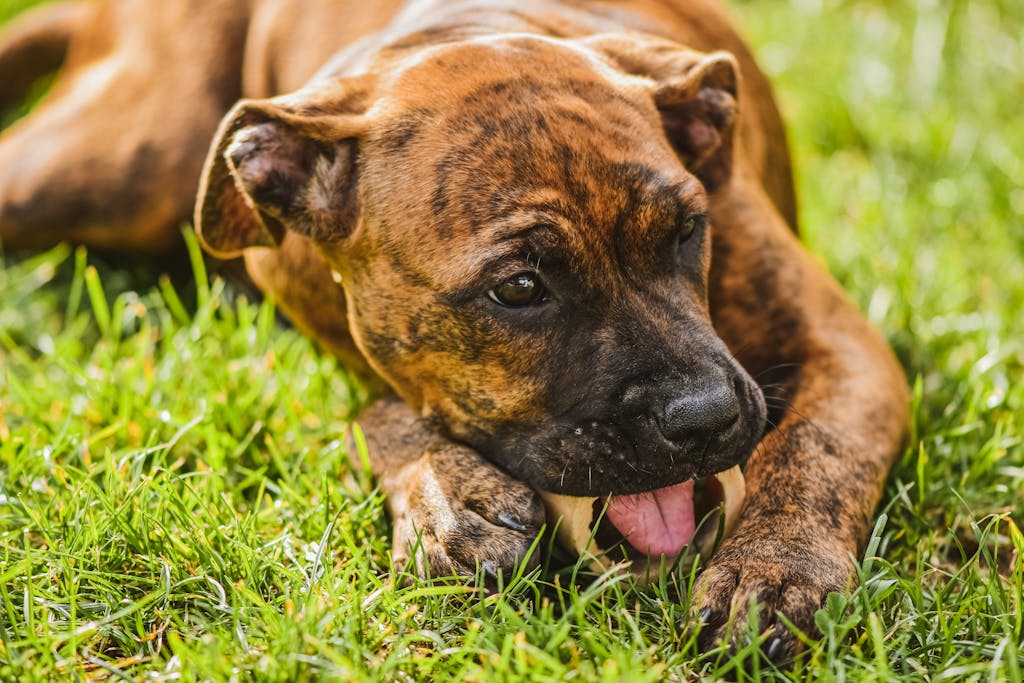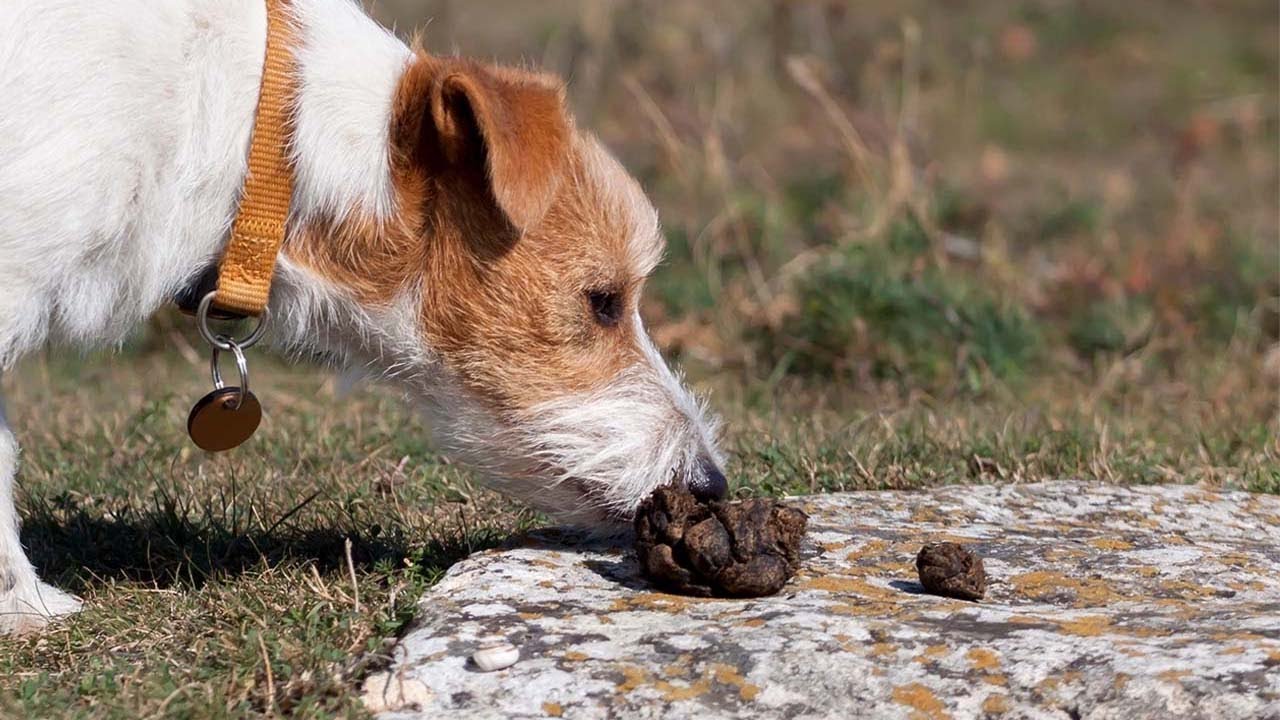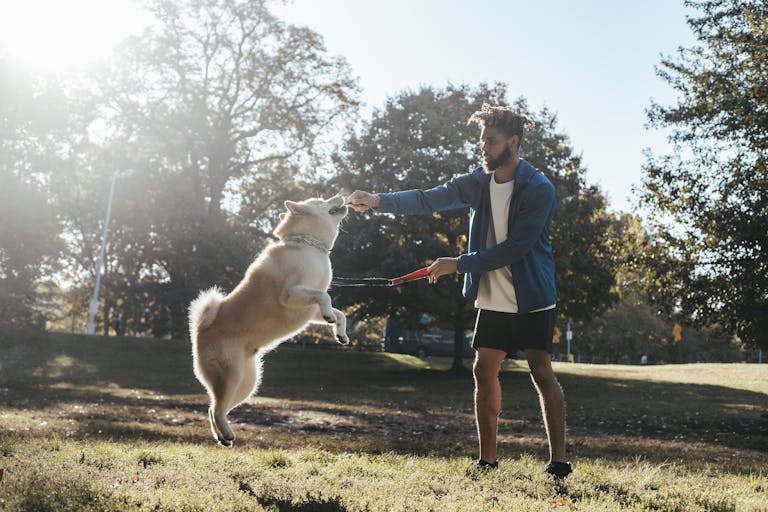How to Stop Your Dog from Eating Poop — 7 Solutions for Coprophagia
The first time I noticed my dog, Adolf, eating his own poop I was appalled, disgusted, and worried sick. As a novice pet parent at the time, this seemed like a curveball I didn’t know how to handle. I mean I was prepared to deal with potty training, puppy chewing on everything in their sight, and investing in the right nutrition and training. But never in my wildest dreams had I imagined I’d be left to figure out how to stop my dog from eating poop—his own, no less.
A trip to the vet was promptly scheduled. And after the visit and a lot of research into the matter, I discovered that Coprophagia is not uncommon in dogs. Wouldn’t say I was relieved but it definitely eased my worries a great deal. If you’re a pet parent dealing with a similar situation, this guide on how to stop your dog from eating poop is what you need to allay your fears and tackle the problem effectively.
Table of Contents
Why Dogs Eat Poop — Coprophagia Decoded
Coprophagia, a condition involving consumption of feces, has puzzled and concerned pet parents for a long time. As I’ve already mentioned, while it might disgust us, this behavior is far more common in dogs than we might think. While doctors and veterinary experts haven’t been able to zero-in on a definitive cause for Coprophagia, it is believed to be triggered by a variety of factors, ranging from biological instincts to behavioral issues and underlying medical conditions. Here are some commonly believed reasons why dogs eat poop:
1. Evolutionary and instinctual reasons
Dogs are descendants of scavengers like wolves, and in the wild, eating feces may have once served a survival function. For instance, it could have been a way of keeping their dens clean and avoiding contamination of their habitat. This ancestral instinct may still be alive in some dogs.
Dr. Benjamin Hart, a professor emeritus at the University of California, Davis, explains, “Wolves, dogs’ ancestors, live in small dens. In those environments, it is not uncommon for wolves or other canines to consume feces to keep the area clean and reduce the risk of diseases. This behavior might persist in some domesticated dogs, especially in environments that are stressful or if they perceive the feces as a resource.”
2. Nutritional deficiencies
Why do dogs eat poop? Nutritional deficiencies are among the most commonly cited causes for coprophagia. A study published in Veterinary Medicine (2012) found that dogs on low-quality diets were more likely to exhibit coprophagia. Dr. Karen Becker, a holistic veterinarian, adds, “Dogs that are missing something in their diet, such as specific enzymes or nutrients, might be trying to make up for it by eating feces. Often, correcting the diet by adding more nutrient-dense foods or supplements can reduce this behavior.”
So, if your dog has been eating its own feces or grabbing a mouthful of poop, especially cattle dung, on their walks, it may be time to revisit what you’re putting in their food bowl. Your pet might just be attempting to compensate for a lack of nutrients such as vitamins, minerals, or digestive enzymes. If so, high-quality dog food or nutritionally complete homemade food can go a long way in correcting this behavior.
Suggested Reading: Is Pumpkin Good for Dogs? Benefits and Things to Consider
3. Behavioral and environmental factors
A 2018 study led by Dr. Hart found that about 16% of all dogs, and over 23% of dogs that were frequently confined, engaged in poop-eating behaviors. Dr. Nicholas Dodman, a veterinary behaviorist at Tufts University, explains: “Boredom, anxiety, and stress can drive a dog to adopt unusual behaviors, including coprophagia. In rescue shelters, we often see this behavior in dogs that have spent a long time in cages or isolated environments.”
If your dog is confined in a small space, like a kennel, for prolonged durations—long enough that they have to relieve themselves inside—it could well be the trigger behind their Coprophagia. Apart from a need to keep their environment clean, boredom and anxiety over being confined can exacerbate this tendency.
4. Attention-seeking behavior
Eating poop can also be your dog’s way of seeking attention. If your dog sees that eating poop elicits a strong reaction from you and they have been feeling neglected otherwise, they may resort to it more often to seek your attention.
Canine behaviorist Dr. Patrick Melese says, “Dogs are incredibly sensitive to their owners’ reactions. If a dog sees that eating poop gets a big response—whether scolding or shouting—it might learn that this is a good way to get noticed. Owners should try to minimize their reactions and instead focus on positive reinforcement for desirable behaviors.”
5. Medical conditions
Underlying medical conditions could also be why dogs eat poop. Commonly known triggers for Coprophagia include,
- Gastrointestinal disorders
- Parasites
- Malabsorption syndromes
- Diabetes
- Thyroid disease
- Cushing’s disease
If a medical condition is the trigger, your dog may be resorting to eating poop as a way of easing their discomfort, soothing their digestive system, or to make up for improper nutrient absorption. A study published in The Journal of the American Veterinary Medical Association identified gastrointestinal and malabsorption issues as some of the medical causes of coprophagia. When the underlying health problems were treated, the behavior often subsided.
Veterinarian Dr. Lisa Radosta states, “If your dog suddenly starts eating poop, it’s important to rule out any underlying medical conditions. This behavior could be a sign of something deeper, like an enzyme deficiency, intestinal parasites, or a thyroid imbalance.”
Suggested Reading: Common Types of Cysts in Dogs | How to Treat Them
6. Maternal instincts
Why do dogs eat poop? Here is an answer you may not have expected: maternal instincts. Yes, Coprophagia can be a part of dogs’ maternal instincts. A female dog may eat their puppies’ feces to keep their living environment clean. This is also a way to protect their young by eliminating the scent that could attract predators. The behavior usually subsides once the puppies grow and become independent.
Dr. Sophia Yin, a renowned animal behaviorist, says, “Maternal instincts play a large role in poop-eating behavior in nursing mothers. This behavior is protective and nurturing, ensuring that the puppies’ living area remains clean and safe.”
7. Pica Syndrome
Pica Syndrome is a condition characterized by a dog’s tendency to eat non-food items, including feces. Pica in dogs can be a result of psychological or medical factors and coprophagia one of its many manifestations. Veterinarian Dr. Sarah Wooten explains, “Dogs with pica may consume all sorts of inappropriate substances, including feces, due to behavioral or medical issues like anxiety, digestive disorders, or neurological problems. Pica requires careful diagnosis and management by a veterinarian.”

How to Stop Your Dog from Eating Poop: 7 Effective Tips
There is a strong correlation between reasons why dogs eat poop and how to stop them. So, the first order of business in your endeavor to figure out how to stop your dog from eating poop is to identify the underlying cause. Once you do, zeroing-in on dog coprophagia solutions becomes fairly easy. Based on the trigger, you can try any one or a combination of the following tips to stop dog from eating poop:
1. Improve your dog’s diet
If you’ve discovered that your dog has been eating poop due to nutritional deficiencies, switching to a high-quality, well-balanced diet can help minimize the behavior to a great extent. In some cases, adding enzyme supplements or probiotics can also improve your dog’s digestion and ability to absorb the right nutrients.
Apart from making necessary adjustments to your pet’s diet, talk to your vet about adding digestive enzymes like pancreatin or probiotics. Dr. Becker advises, “Dietary corrections can stop your dog from seeking nutrients in feces.”
Suggested Reading: Can Dogs Eat Almonds?
2. Keep the environment clean
Dogs can only eat poop if it’s available to them. So, the best answer to how to prevent dogs from eating feces may well be keeping your pet’s environment clean. ““Removing feces quickly and regularly from your dog’s environment is the most straightforward and effective way to stop poop-eating behavior. If the feces are gone, the habit will break more easily,” recommends Dr. Dodman.
To begin with, your dog should not have to sit in their filth at all. As a pet parent, it’s your responsibility to potty train your dog and take them out regularly to relieve themselves. Even so, accidents may happen. In that case, make it a point to clean after your pet promptly to make sure there is no scope for them to feast on their feces.
3. Use positive reinforcement and training
Dog training to prevent coprophagia is essential. One of the most crucial training tips to stop poop eating in dogs is not to respond to this behavior in any way at all—don’t scold, don’t yell, don’t pull them away physically. If your dog is resorting to poop eating as a way of seeking attention, your reaction may reinforce their behavior.
Instead, focus on using positive reinforcement can help teach your dog to ignore poop and redirect them toward a desirable behavior. The “leave it” followed by a high-quality reward is an effective method of dog training to prevent coprophagia.
Dog trainer Victoria Stilwell emphasizes, “Teaching a ‘leave it’ command, paired with rewarding your dog when they choose not to engage in unwanted behaviors, is essential for long-term success. Focus on rewarding the behaviors you want to see rather than punishing the dog for mistakes.”
Suggested Reading: 10 Signs Your Dog Needs More Training
4. Increase exercise and mental stimulation
Since boredom and a lack of stimulation can lead to coprophagia, another one of the crucial training tips to stop poop eating is to engage your pet in playtime, walks, and enjoyable activities like fetch. If your dog is resorting to poop-eating as a way to relieve anxiety caused by boredom, stress, or under-stimulation, this technique can be immensely effective.
Dr. Wooten explains, “Dogs that don’t get enough exercise or mental stimulation are more likely to engage in destructive behaviors, including eating poop. By providing daily exercise, interactive toys, and puzzle feeders, you can help reduce these tendencies.”
5. Add deterrents to your dog’s diet
You can even try home remedies to stop poop eating in dogs such as adding foods that contain bromelain, which can make feces less palatable, to your dog’s diet. Some natural options are canned pumpkin or fresh pineapple. In addition to it, there are commercial products like For-Bid, NaturVet Coprophagia Deterrent that can help make poop unappealing to dogs.
Of course, any changes or additions to your dog’s diet must be done in consultation with your vet. On using food-based deterrents as dog coprophagia solutions, veterinarian Dr. Patty Khuly mentions, “Adding certain substances to your dog’s diet that make their feces unpalatable can sometimes work. However, these products need to be consistently given and combined with behavior modification.”
6. Address underlying medical issues
Dr. Radosta emphasizes, “If the onset of coprophagia is sudden or excessive, there may be an underlying medical cause at play. A vet examination is critical to diagnose and address these issues.” If that’s the case with your pet, you must schedule a vet visit to rule out or treat medical issues.
7. Use muzzle or supervised walks
Walks can be an opportunity for dogs to gorge on poop, so while you’re working on addressing this behavior, one of the best methods to stop a dog from eating poop is to use a muzzle or closely supervise them during walks.
Dr. Melese advises, “Using tools like a muzzle temporarily or keeping your dog on a short leash during walks can prevent coprophagia while you work on training and behavior modification.”
“Temporarily” is the operative word here. A muzzle or keeping your dog on a short leash cannot be a replacement for dog training to prevent coprophagia or identifying the underlying issue and addressing it. However, in the interim, it can be immensely effective.
Suggested Reading: Dog Training Toolkit: 18 Essentials
Watch this video for visual demonstration of remedies:
FAQs
- What supplements can help stop poop eating?
To stop poop eating in dogs, Supplements can be helpful in stopping poop eating in dogs if the behavior is triggered by nutritional deficiencies or digestive issues. Commonly recommended supplements include:
- Digestive enzymes: Help improve digestion and nutrient absorption, reducing the likelihood of dogs eating feces due to malabsorption issues
- Probiotics: Support gut health and balance, which may decrease the desire to eat stool
- Vitamin B complex: Some dogs eat poop due to a deficiency in B vitamins, so adding a supplement can help
- Pineapple or pumpkin: Though not technically supplements, these can make the poop taste unpleasant, deterring dogs from eating it
Always consult with a vet before starting any supplements for your dog.
- Will punishment stop my dog from eating poop?
Punishment is generally not effective in stopping your dog from eating poop and can actually make the problem worse. Dogs may become anxious or fearful, which could lead to more behavioral issues, including increased poop eating. Instead of punishment, focus on positive reinforcement by teaching alternative behaviors, keeping your dog’s environment clean, and addressing any potential underlying medical or nutritional issues with the help of your vet.
Takeaway
To stop a dog from eating poop, you need a well-rounded approach, often involving expert examination and training. Above all, you need patience to tide you over without losing your cool on your pet. By addressing underlying causes such as nutritional deficiencies, boredom, or medical issues, and using positive reinforcement, diet adjustments, and deterrents, you can successfully manage and reduce coprophagia in your dog.







